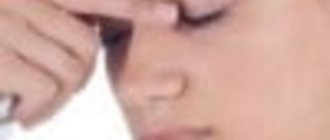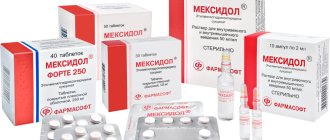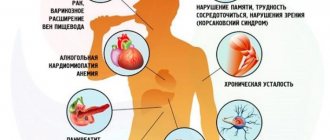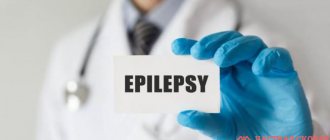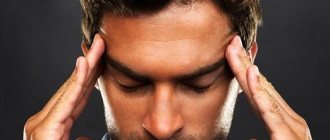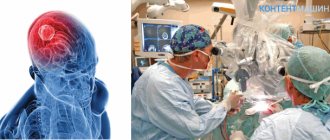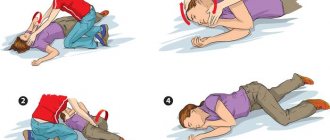Home>Articles>Alcohol intake during concussion
quick menu (hide)
- Brain injury
- Concussion and alcohol
- Risk factors
- The effect of alcohol on the brain
- Should you drink if you have a brain injury?
- conclusions
Even a mild concussion imposes serious restrictions on alcohol consumption. Nicotine addiction is also prohibited and you will have to give up smoking. For such injuries, bed rest is prescribed, which excludes any irritating factors. A concussion often increases sensitivity to bright lights and loud sounds, and drinking alcohol will only worsen the patient’s condition.
Alcohol during a concussion increases cell damage , which can lead to serious consequences. Failure to comply with the prescribed treatment regimen can cause mental disorders, impaired motor function, decreased concentration and the development of dementia. After a concussion, headaches can last a lifetime. It is important to know that pain, nausea and coordination problems increase many times over .
Diagnosis: brain injury
Damage to brain tissue has specific manifestations that immediately affect your well-being. The conclusion about a concussion is made when there is a disruption in the functionality of the brain caused by injuries to the skull. In this case, even the presence of a wound is not at all necessary, and a strong blow without signs of external damage will be enough. Participation in a fight or an accidental fall often leads to similar results. Alcohol is especially harmful during a concussion; the consequences of its use will make treatment ineffective and can be fatal.
consult a doctor immediately . It will not be difficult to make a preliminary diagnosis by analyzing the patient’s well-being. A concussion is accompanied by the following symptoms :
- the occurrence of nausea and gag reflexes;
- a sharp increase in pressure ;
- rapid pulse and cardiac arrhythmia ;
- intermittent and labored breathing .
Such disturbances in well-being are often noticeable even from the outside. In case of concussions, alcohol becomes especially dangerous and its use should be completely avoided. Ethanol has a damaging effect on blood vessels and aggravates the consequences of functional disorders. Deciding how much to drink after such an injury is quite simple. You should not drink alcohol even in small doses; perhaps this glass will be your last.
Effect of alcohol on the brain
Alcohol products have a detrimental effect on all organic structures, the brain is especially affected. With alcohol abuse, the brain shrinks, its volume is catastrophically reduced, the convolutions are smoothed out, the vessels undergo changes, and the membranes swell. Such changes develop gradually, manifesting themselves as dementia. Alcohol intoxication causes irreversible processes in all brain functions, even the most advanced ones such as logical and abstract thinking.
This effect of alcohol on brain cells is determined by its ability to glue erythrocyte cell structures, which is especially dangerous for the smallest vessels, because the resulting blood clots block the vascular lumens, depriving the brain cells of nutrition. With each intake of alcohol, the number of dead cells is replenished, so with prolonged alcohol abuse, tissues and organs gradually die and die.
Even with moderate alcohol consumption, over 7-12 years, the tissue structures of the brain are seriously changed, and mental activity noticeably deteriorates. If such a factor is supplemented by a traumatic brain injury, then all pathological and destructive processes increase in intensity, which is why doctors prohibit patients with concussions from drinking alcohol.
With a concussion, brain function deteriorates for about a week or two. The degree of impairment depends on the strength of the impact, according to which the injury can be mild, moderate or severe. The main signs of injury are:
- Dizziness;
- Amnestic manifestations;
- Nausea;
- Brief confusion;
- Lethargy;
- Visual impairment;
- Poor appetite.
To diagnose a concussion, studies such as MRI, CT, electroencephalography, X-ray, Doppler ultrasound, etc. are used.
Brain injury and alcoholic beverages
Even after overcoming the acute period of concussion, the patient's condition improves only partially. Insomnia, dizziness, headaches and difficulty concentrating continue to make themselves felt for a long time. Drinking alcohol after a concussion is strictly prohibited . Alcohol consumption has symptoms similar to brain injury, and the combination of these processes can lead to irreversible health consequences.
If you have a brain injury, you should refrain from driving a car or climbing to heights on your own. Taking alcohol in any form is out of the question. Both strong and low-alcohol drinks should be excluded. Drinking alcohol will not only worsen your physical condition. Anxiety, depression or impaired mental abilities are just a few of the possible consequences. Alcohol in case of brain injury contributes to the development of vegetative-vascular dystonia, asthenic syndrome and epilepsy.
Risk factors for brain injuries
Drinking alcoholic beverages negatively affects the entire body. During intoxication, the vascular system and the brain are most injured. Tissue destruction occurs at the cellular level and has irreversible consequences . Any pathologist can accurately determine how much the deceased liked to drink. The brain of an alcoholic has a highly wrinkled structure and is different from the brain tissue of a non-drinker. Such signs of atrophy appear more and more over time, and drinkers rarely live to an advanced age.
Craving for alcohol often becomes the cause of senile dementia, which manifests itself long before old age. In such people, brain vessels atrophy , which leads to distorted perception and difficulties with logical thinking. Alcohol after a concussion, instead of tissue regeneration, accelerates their degradation. The consequences of drinking alcohol are difficult to predict, and its effect can easily cancel out all the results of treatment.
Nerve cells are destroyed under the influence of alcohol, which also leads to irreversible consequences. Severe intoxication with poisons causes their degradation and death . All organs suffer from poisoning by ethanol breakdown products. Brain tissue is especially susceptible to toxic effects, and over time, such consequences become irreversible. If you drink alcohol frequently, you should not expect the body to recover quickly. In this case, the recovery processes will be inhibited by the destructive influence of alcohol.
The effect of alcohol on the brain
With injuries of this kind, rest and the absence of stress factors are necessary. Ethanol alcohol weakens the functionality of the brain and causes disturbances in the central nervous system. Such risk factors are unacceptable, and it is necessary to exclude any possibility of improving the patient’s condition by drinking. Alcohol after a concussion can not only cause headaches and dizziness, but also cause tremors, psychosis or paranoia.
When there is a high ethanol content in the blood, red blood cells adhere to each other. Such destructive processes cause the destruction of blood vessels. The sticking of red blood cells leads to the formation of blood clots, which completely or partially block the blood supply to the cells. The intensity of such processes depends on the amount of ethanol in the blood and continues throughout the entire period of intoxication. Such processes cause tissue death. Even with moderate alcohol consumption, after 7-12 years, mental impairment .
The effects of alcohol are extremely harmful for both light drinkers and lovers of strong drinks. A cranial concussion requires rest , and ethanol is counterproductive in treatment. Deciding whether you can drink alcohol if you have a concussion is quite simple. In case of such injuries, there is a strict ban on the use of alcohol, which is justified by its destructive effect on the blood vessels of the brain. Drinking alcoholic beverages contributes to the development of serious pathologies that are practically untreatable.
Treatment? Necessarily!
After a concussion (even in the mildest degree), it is imperative to undergo a course of rehabilitation treatment. It is selected by the doctor specifically depending on the severity of the injury.
Even with a mild concussion, bed rest is required for 2–3 days. The best medicine in the first days is sleep. You can take mild sedatives: herbal preparations with valerian, motherwort. In the room you need to draw the curtains on the windows or lower the blinds, in the evening do not turn on bright lights, but use a night light. For several days, even if you feel quite well, TV, computer, and reading are prohibited.
One of the consequences of such an injury is the occurrence of edema. To prevent them, the doctor may prescribe a mild diuretic with potassium supplements to prevent its loss by the body through the exiting fluid. In general, you should try to drink less; strong tea, coffee and other tonic drinks are strictly excluded; the best option is mineral water. A dairy-vegetable diet is preferable. Bananas, citrus fruits, and walnuts are very healthy.
Even after a mild concussion, you will have to forget about household chores and any physical activity for at least a couple of weeks; do not rush to get behind the wheel.
If the injury turns out to be moderate or severe and you are admitted to the hospital, the doctor, of course, will give specific recommendations after discharge, but do not forget that you must be monitored by a neurologist for a year.
Should you drink if you have a concussion?
The presence of alcohol in the blood disrupts the functioning of the brain even in a healthy person. The symptoms of a concussion correspond to signs of intoxication, which indicates some similarity in abnormalities in brain activity. Even a mild form of concussion makes a person more sensitive to the effects of ethanol. In this case, there is rapid intoxication, loss of coordination and a sharp deterioration in well-being . Severe brain injuries may also cause hallucinations.
With a concussion, the effect of alcohol on mental state also increases. Hysteria and irritability arise, and the sick person is not always fully aware of his actions. In medical practice, there are many examples when even a small dose of alcohol became the cause of delirium tremens or other mental disorders. increases the risk of epileptic seizures several times Even the slightest dose of alcohol should be completely avoided until complete rehabilitation.
Drinking alcohol during a concussion causes an acute headache, which will be no less than from the injury. With such pathologies, swelling of the brain occurs and it will take even more time to restore its normal functioning. The consequences of drinking alcohol during a concussion can lead to loss of consciousness, stroke or coma. Acute dependence on alcohol cannot be the reason for even a small dose.
Treatment for concussion
The diagnosis of FBS is made in cases of mild brain injury. But what to do if there is no specialist nearby? First aid for a concussion does not cause difficulties, so household members or people around the victim are quite capable of providing it on their own.
- If there are signs of a concussion, you should go to the emergency room or call an ambulance.
- The victim must not be left without attention, because there is a high risk of vomiting and severe convulsions. The general condition may worsen, and sometimes victims lose consciousness.
- It is recommended to place the unconscious victim in a lateral position, take the pulse, check the breathing or heartbeat.
- The head and upper half of the victim’s body are placed at some elevation.
- Cold can be applied to the head, and if there are wounds, they must be treated.
Even if concussion symptoms indicate a mild injury, treatment is still necessary. The specialist prescribes a course of therapy in accordance with the condition of a particular patient, lasting about 10 days, half of which the patient must remain in bed. For mild concussions, treatment can be done at home, but you should avoid any work activity and remain at rest. After several days, physical activity is resumed again so that cerebral circulation is restored and starts working as before.
As already mentioned, on average, treatment for a concussion lasts about 10 days. These days, the patient is prescribed drugs to normalize blood circulation in the brain, such as Cavinton or Encephabol. For severe vomiting, antiemetic medications are indicated. For headaches, take painkillers (Sedalgin or Baralgin) or NSAIDs (Nimesulide, Nurofen, Ibuprofen). In some cases, tranquilizers like Elenium, Nozepam, Phenobarbital, etc. are indicated.
Dizziness is eliminated by using papaverine drugs like Tanakan or Belloid. Sympathomimetics are often prescribed to stimulate the activity of the autonomic nervous system. If the victims did not abuse alcohol before the injury, then the probability of a complete recovery is about 97%.
conclusions
A concussion is extremely dangerous to your health and the consequences of this injury can be felt throughout your life. Treatment of such functional disorders often requires a long rehabilitation period, during which any alcohol-containing drinks are excluded. If a concussion occurs, is it possible to drink alcohol? You shouldn’t even ask. Medicine does not allow such treatment even for mild cases of this disease.
Drinking alcohol will not help relieve a concussion and will only complicate treatment. Head injuries are especially dangerous because they have unpredictable consequences and any risk factors should be excluded . Proper treatment will not only help you quickly go through the rehabilitation period, but will also reduce the craving for alcohol in the drinker. It is extremely important to exclude complications in the treatment of head injuries, and giving up alcohol will be the right decision.
